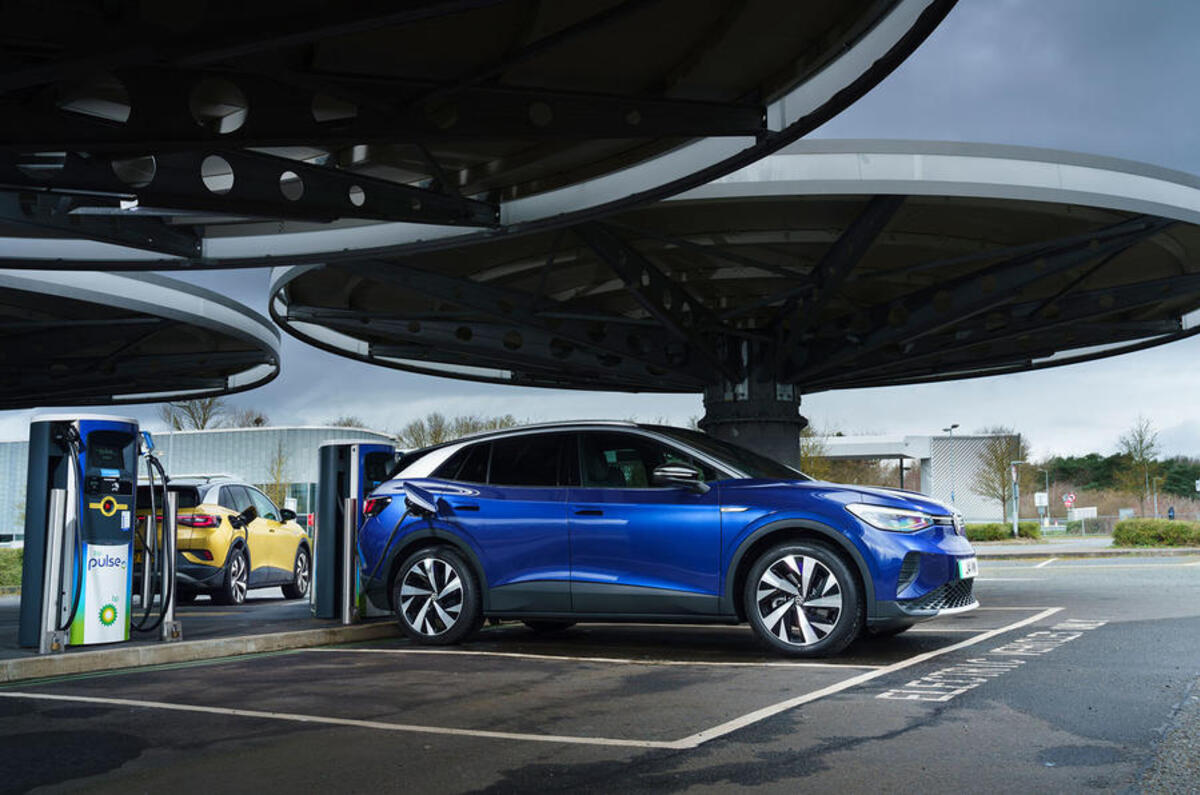Volkswagen has introduced measures to temporarily scale back production of electric models at one of its German plants.
According to the German car maker's work council, a shift at Volkswagen's Emden plant in Lower Saxony has been cancelled for the next two weeks in a lead-up to an extended four-week summer holiday period for workers on electric vehicle lines in July and August.
Among the models affected are the ID 4 SUV and early production of the ID 7 saloon. Details of the shortening of shifts were provided by Manfred Wulff, head of the works council for the Emden plant, in response to an inquiry from the German Press Agency and an earlier article published by the North West newspaper.
While the production of combustion-engine models, including the Volkswagen Passat, continues unchanged, the factory holidays for electric vehicle line workers have been extended by one week.
Additionally, Wulff says 300 of the current 1500 temporary workers employed at Volkswagen's Emden plant will not have their contracts renewed in August 2023. Employees were informed about the reduction in electric vehicle production on Monday.
Wulff indicates demand for electric vehicles is up to 30% below originally planned production figures.
“We are experiencing strong customer reluctance in the electric vehicle sector,” he told the North West newspaper.
Wulff said production of the ID 7 saloon had originally been planned to start in July but has now been delayed to “later this year”.
In a statement, a spokesperson for the Volkswagen Emden plant said: “We are confident that the plant's utilisation will increase again with the launch of the ID 7 at the end of the year.
Production of the internal-combustion-engine Passat is set to cease at Emden after 46 years when the ninth-generation model arrives later this year. Volkswagen has invested around €1 billion (£858 million) in the site for electric vehicle production.
In an interview with the North West newspaper, the minister of economic affairs for the state of Lower Saxony, Olaf Lies, commented on the measures introduced by Volkswagen at Emden, describing them as “understandable”.
"The registration numbers of electric vehicles continue to be high, but what concerns us is the current dip in demand - not only at Volkswagen but across all manufacturers," said Lies.
Lies has called for discussions on the implementation of new incentives for electric vehicle purchases, including a reduction in value-added tax.
Volkswagen currently produces EVs at four plants in Germany: Emden, Zwickau, Hanover and Dresden.




Add your comment